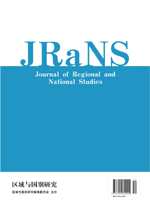“Asia” is a spatial concept that lies between the nation-state and the world. Against the backdrop of Western colonialism and Japan's efforts to promote the “Greater Asia,” intellectuals in the late Qing and early Republican period gradually shifted the understanding of “Asia” from a mere “geographical category” to a more profound “cultural category,” ultimately shaping the regional landscape of “Cultural Asia.” By examining the ideas of Huang Zunxian, Wang Tao, and Tang Caichang on “shared language and race” and “alliance with Japan to resist Russia,” the proposals of Zhang Taiyan, Liu Shipei, and Liang Qichao to transcend “nationalism” and seek the union of weaker nations, as well as the attempts by Sun Yat-sen and Li Dazhao to construct a “New Asian Order,” this study reveals that their views of Asia all reflect the effort to define China's position within the Asian and world order, resistance to colonialism and expansionism, the internal dissolution of national centrality, and the advocacy of Asian unity. The search for Asia reflects the complex process of accepting, resisting, and transforming Western learning, while also representing a response to Western hegemony, and embodying the awareness of integrating into the world and the difficult exploration of modern civilization paradigms.





